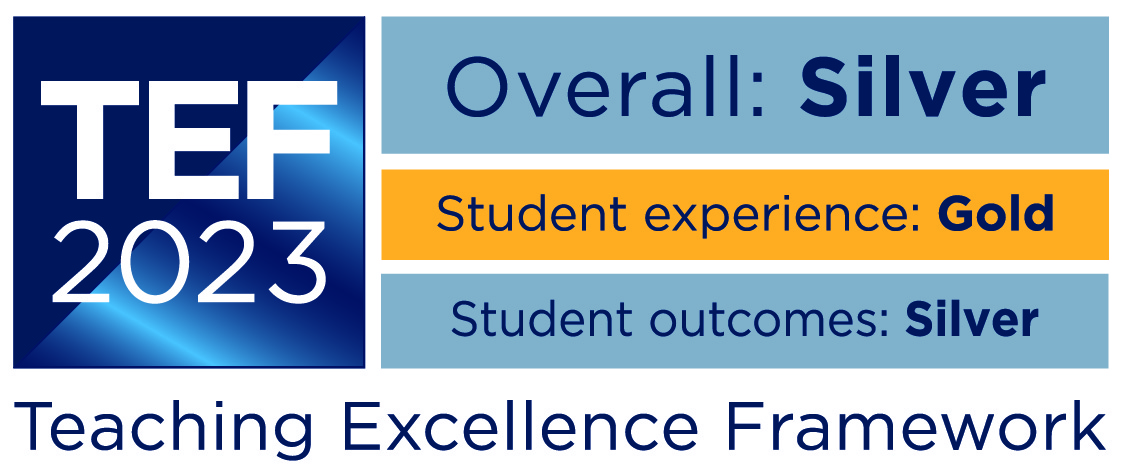This website uses cookies so that we can provide you with the best user experience possible. Cookie information is stored in your browser and performs functions such as recognising you when you return to our website and helping our team to understand which sections of the website you find most interesting and useful. For full details on the cookies used on our website, please visit our Cookies Policy page.
Futureworks is the UK’s foremost higher education provider for people seeking a career in in the creative industries. In our continuing series of graduate interviews, the focus is on our Music Production degree and the fact that age is a benefit, and never a barrier to achieving your lifelong dreams.
In his early thirties, freelance designer and photographer Dave Cummins established his own Marketing company. After years of running his own business, he decided on a change. With a lifelong passion for music, a history of song writing, and having played in bands since the mid-seventies, Dave chose to study for a BA Hons in Music Production at Futureworks resulting in him receiving a first class degree and the Best Student Award when he graduated in 2023.
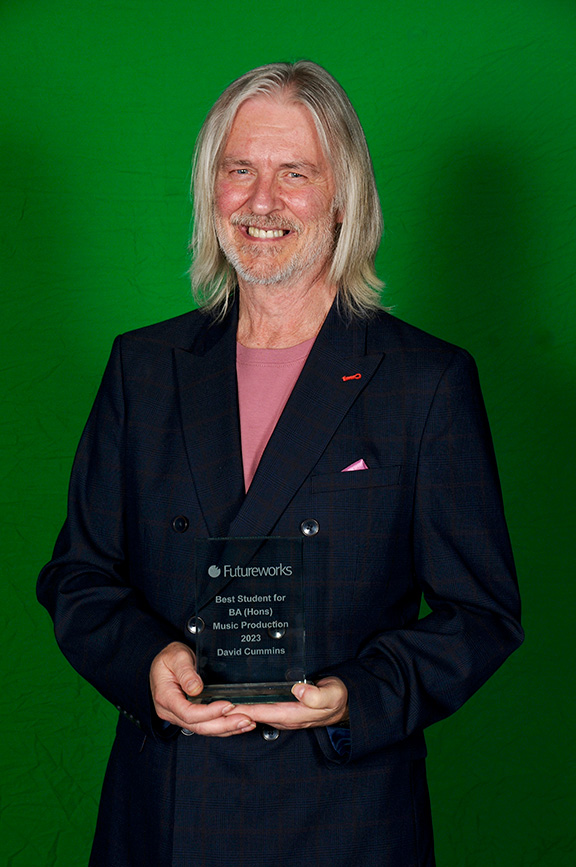
We caught up with Dave, surrounded by instruments and recording equipment, in his music studio at home:
Dave, why did you choose to re-educate after having such a successful business and creative career?
“It’s not like I had a plan; I’m very much a go-with-the-flow type of person. I was working on closing down my business and winding it up. I’d done enough; I was 65 years old, but I still wanted to do something creative, and my passion has always been music. For years, my career was focused on my business, and to be successful in business, you must work at it. So, over the years, my business was where I focused my energies, but to the detriment of my passion for writing, performing and recording my music. Work just got in the way.”
But did you continue dabbling in music while running your business?
“Oh yeah, I’ve played in bands since the seventies. When the Atari-ST came along in the early nineties, I discovered you could make music on the computer, so I set up a small music studio at home. I started using CuBase, where everyone started, I bought a 4 track tape recorder and synths and really enjoyed it. I didn’t do it for anything other than to learn, but I recorded stuff and wrote a few songs then. In fact, when I was studying at Futureworks, I used one of my old nineties songs and re-composed it for a composition project. The writing was good, but my nineties production skills were basic at best, so having the chance to revitalise it through my course at Futureworks was a great opportunity.”
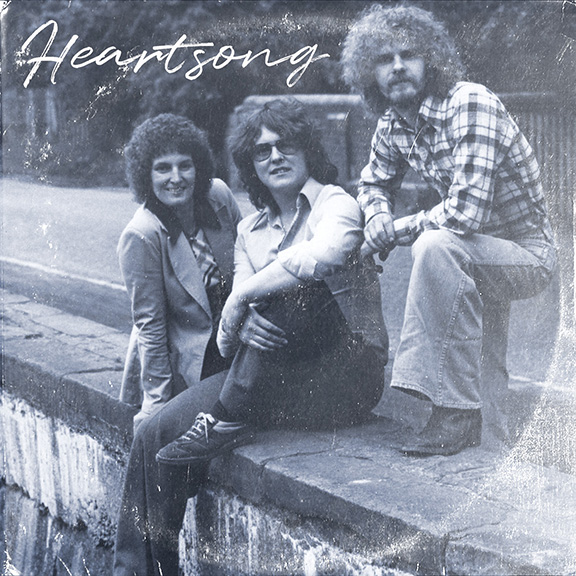
So, your passion was always music?
“Yeah. My big life-changing moment was when my partner passed away in 2017, she loved music and always used to recommend tracks. I started writing music as a catharsis to help with the grief, and it really made a big difference. It reignited my passion for songwriting. I wrote a lot of tracks between 2017 and 2018, and I released them as an album in 2019. It’s out there on Spotify, I have Dreams.”
“I still think the songs are good, but the production was poor. That made me think I should learn more about production.
How did you decide on Futureworks?
“I was chatting with a session musician. He’d been a mature student, and he mentioned Futureworks. So, I went along to an Open Day and was shown around by Paul White, known as ‘Dig.’ We chatted, and I told him that Futureworks sounded perfect and that the courses were what I wanted to do. Still, I was worried that I would be much older than the other students and unsure whether I’d fit in.”
“Dig said to come back after the Open Day. So, I did, and we spoke. I played some of my music to him, and he said apply. I thought, ‘What have I got to lose?'”
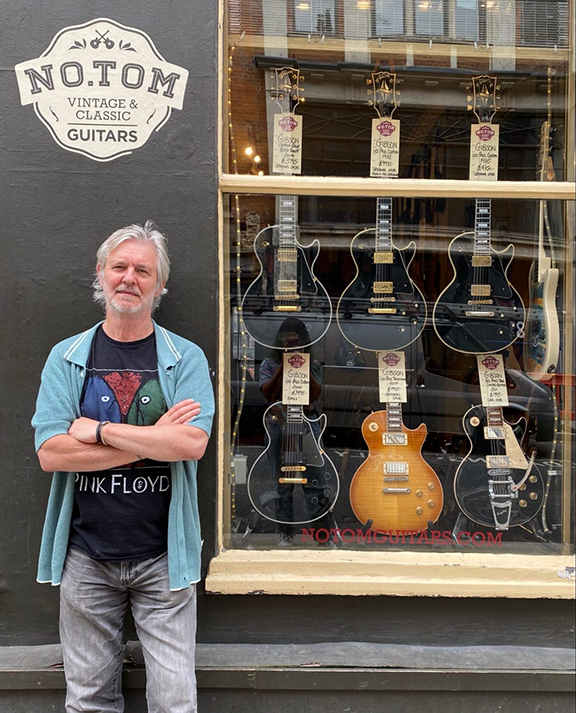
What course did you end up studying?
“I did Music Production because I wanted to improve my production skills. First and foremost, I saw myself as a writer and vocalist. I play instruments. I like rock music, folk music, and jazz, but I wanted to learn more about production and improve my music. Before I made my decision though I went to look around the studio facilities and they were really good. I met Craig Burgess, the head of the Music Production Course, and the fact that he and his fellow lecturers are industry professionals made a massive difference to me. Futureworks Lecturers are working producers and composers, they’re working front-of-house, and they’re recording engineers. For me, they represented the level of where I wanted to be. That was why I chose Futureworks; I saw the lecturers as highly capable of teaching me the skills I needed.”
“Futureworks was so good at this (music and production) because the course is geared so much toward preparing people for working in the industry. They prepare you for a job when you’re finished. Futureworks has great success, with graduates working on some amazing projects after graduation. Some people who graduated alongside me now work in the music industry or they’re producing, writing, recording and performing their own music. I’ve stayed in touch with many of them and made some life-long friendships!”
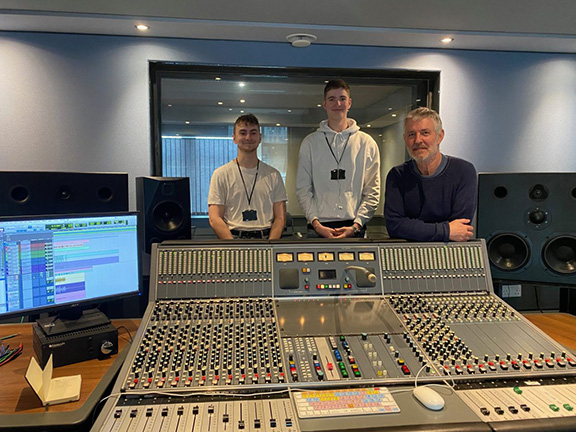
Did you imagine yourself working in the music industry once you graduated?
“No. I had no aspirations to work at all. I didn’t think about working anywhere; I was just doing it for me. But, if you do well, opportunities come your way. I still write and perform my own music. I’ll never stop doing that. Craig is now a good friend, and we work on his open mic nights together, so that was something new. I worked with Pete Jenkinson, Futureworks Industry Coordinator and Senior Lecturer, to help relaunch Futureworks Music and to run the label. Once the pandemic was over, we wanted to give students the opportunity to play at a live venue, so we started the gigs at the Eagle Inn twice a year. I also suggested we start live lounge sessions, we work together on these and Pete now puts them out on the YouTube channel, Riverside Live. I’m also working with Rob Baldwin, Media Composer and Futureworks Lecturer, composing tracks for his media library releases. To be asked by my old Composition Lecturer to contribute to this project gave me great confidence.”
“Finally, it became apparent whilst I was studying that my marketing experience was extensive and helpful for other students, so during my course, I was invited to guest lecture to students, and this has continued after I’ve graduated. I now teach the Career Focus module to first-year students. I teach them how to get ‘out there’ and educate them to start being more than just a bedroom producer or whatever it is they are doing. I show them how to get their online portfolio sorted, release music and position themselves. I really enjoy it!”
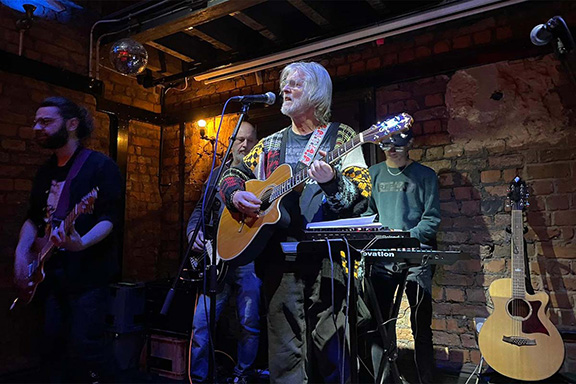
To say you had no aspirations to work at all, that’s quite a repertoire of activities, Dave. Is there anything else you’re doing?
“I still do marketing, design, and marketing consultancy for a few existing clients, and I’ve been busy. I love world music, so I travel, listening and recording different music on my trips. For my third-year major project, I visited Albania and used what I’d heard and learnt there to create the Ffusion Project with Thesaret Labe, Albanian Iso Polyphonic Singers. The website’s still online at ffusion.co.uk.
Are these your musical influences: world music, folk, jazz, and rock?
“Seventies Prog-Rock is my main influence, and the music I love listening to is Pink Floyd, Emerson, Lake and Palmer, Yes!, Robert Plant, artists and bands like that. I grew up with folk music in the seventies, Fairport Convention, James Taylor and Cat Stevens. Cat Stevens was my first gig! I was in folk bands in my twenties; I’ve played support for some big folk names such as John Renbourn and Ralph McTell, so I had all of that as my early music career and influences before I started a formal music education with Futureworks. But Prog-Rock is my love.”
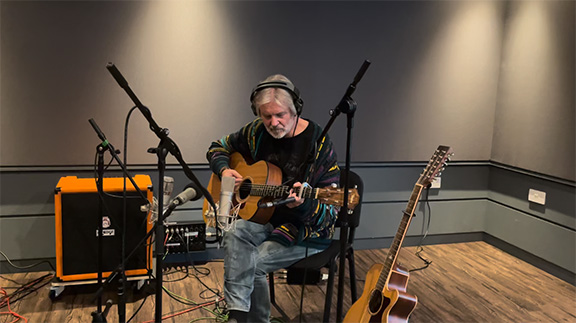
Was it challenging for you to have all of that experience and then come along as a mature student and study with a diverse group of younger students?
“Honestly, it was great! In my first-year we were placed into groups to work together on a group project, there were three of us and the other two guys are still really good friends. Imagine this, in the group there was a rapper, an indie acoustic artist, and me with my progressive rock and folk music. We created some great projects, worked well together and got some good marks. Two of the standout projects were Hey Traveller, a third year composition assignment and Winds of Change 2021, a first-year recording assignment.”
“I really enjoyed working with different people with different styles from different genres; it helped influence how I write my music now. The music I write now is so, so much better, I thought I was an OK writer before I started Futureworks, but now it’s taken me so far up; it’s on another level! Which is why I studied, I wanted to take it up that level.”
So, this other level, is that partly your formal education at Futureworks and your creative collaboration with other artists?
“Absolutely! For example, working with a rapper is interesting; it’s very different from how I work, and it rubs off on you. Other students had different ways of working. Combined with my formal education, music composition lectures, music theory, critical listening, and so on, I started incorporating these influences into my work, which appeared in my music. Futureworks is a collaborative combination of everything you learn and experience while studying.”
Creative collaboration is a big thing at Futureworks, correct?
“The best thing about working on something creative at Uni is you’re always part of a team whether it’s your classmates or your group members. You’re studying with people who are influenced by all different genres of music. They are as equally as passionate about it as you are. It doesn’t matter if they are ten, twenty, or thirty years or more younger than you; you’re all there for the same reason. I loved that; I loved working with the other students.”
“One of the biggest things I got out of Futureworks was the friendships I’ve come out with, younger people more than half my age that I’m still in touch with, and the respect I received surprised me. A lot of the younger students talked to me a lot about my experience, I’d already done a lot of the things they wanted to do. In my third year, I must have played or sang on half the final year projects that students produced, and I gave back as much as I received from them, giving the benefit of my experience and life skills that they’d not had the chance to develop yet. It’s important to realise that you’re not competing with other students when studying in higher education. it’s not about being the best in the group; it’s about being the best you.”
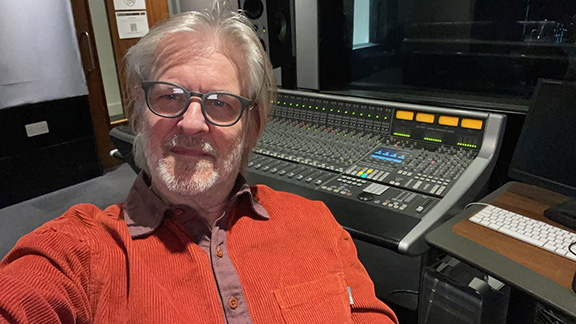
If you were approached by a mature student who was thinking about studying at Futureworks, what would you say to encourage them to apply for the course?
“I’m speaking from experience when I say this because I have two friends, mature students, that are starting at Futureworks in September. Both are musicians, one is 25, in a band and has never been to Uni before, he wants to do the course because his band’s doing well. Still, they’re not gaining any traction; they need more for the band to earn notoriety. I said, ‘Sign onto the course; that’s what I teach in the first year.’ He’ll have Pete Jenkinson teach him similarly in the second year. In the third year, he can demonstrate how he’ll create this ‘traction’ and put it into practice in the real world. Along the way, he’ll learn to be a better writer and certainly learn studio skills he doesn’t have now. So, when you ask, ‘What would I say?’ I’ve given this advice, and I’ve already said it.”
“If you’ve got a passion for music, you love music, or you listen to music and want to learn how to make music – just go and do it! Age is not a barrier at all. If you want to learn, then learn.”
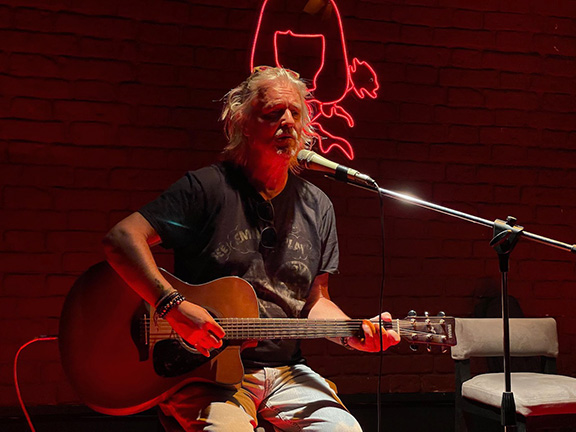
What about those who are worried about maintaining responsibilities and financial commitments while studying. What advice do you have?
“I have someone in the first year this year. They’ve saved some money and put it aside to help them. They’re passionate about music and want to study, but they have been working in engineering. Now they’re studying music production. When you work out all the loans you can take out and add on the student discounts you receive, you’ll find that you can afford to be at Uni. The beauty of Futureworks is that the courses are tailored to prepare you for a career in the music industry, so your commitment is an investment toward a job and a career in something you love. Yeah, some may have to work part-time while studying. It’s not easy, but it’s just three years, and then you’ll have the skills, experience and knowledge to achieve something far better than where you are now.”
How did Futureworks compare to when you first studied design at Uni in the seventies?
“When I first went to Uni at eighteen, I only had a small grant. I had to work nights in a bar and a supermarket on Saturday, but I went on and I made a successful career in design and marketing. It’s no different today; if you want to do it, you’ll find a way. Don’t let anything, whether it’s finances, time, or responsibilities, get in your way. You can still have all those things and still study for a degree. The teaching hours are not massive. A lot of the course is self-motivated learning and putting what you’ve learnt into practice in the studios at Futureworks. You’ll get a lot out if you give one hundred percent to what you do. If you drift along, you won’t. As a mature student, you’re more aware of this work ethic because you’ve already experienced it having to get by in life. You apply it, and the nice thing is that your determination rubs off on your fellow students; they respect you for that and learn from it.”
“Remember, Uni is no get-rich-quick solution; it’s about working hard and doing the right things. At Futureworks, you’ll learn to do the right things, but you have to choose to work on it, and if you do, you’ll definitely have more chance of success.”
“Simply put, just do it, go for it. If music is your passion, studying at Futureworks is one of the best things you can ever do.”
As well as visiting the links within this article, you can also experience Dave’s incredible songwriting and musical talent on Spotify, Soundcloud and his website.
If you’re seeking a new career, looking to train your musical talents, and learn industry-standard music production skills why not book on to a Futureworks Open Day? Come along and meet our Sound & Music Lecturers, enjoy a tour of the facilities and get hands on with professional equipment. Meet students and hear what they have to say about us and discover why Futureworks is the UKs foremost higher education provider for people seeking a worthwhile and rewarding career in the music industry. We’re looking forward to meeting you!
You can also read more about our School of Sound & Music Production courses on our website here.
